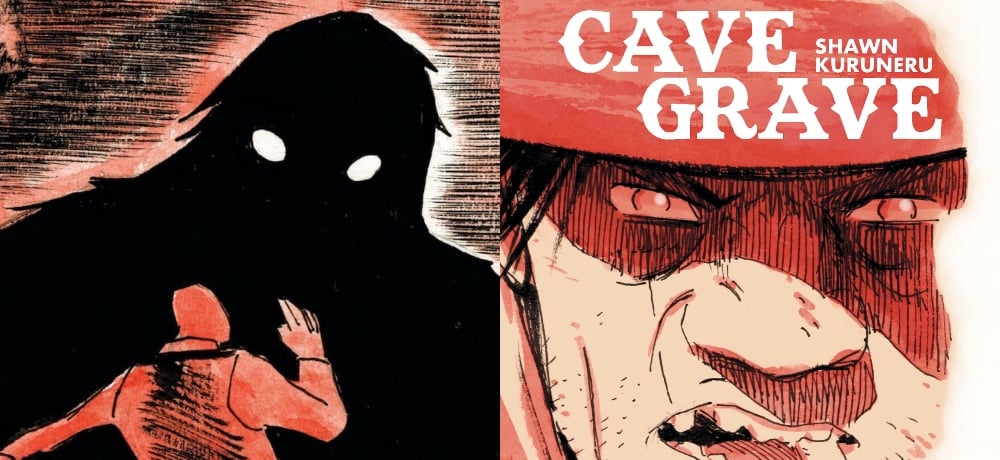





While attending the 2018 Sundance Film Festival, Daily Dead had the opportunity to catch up on a trio of comedies that ran the gamut of humor: Augustine Frizzell’s Never Goin’ Back, Sebastián Hofmann's Time Share, and Jonathan Watson’s Arizona, which is centered around the 2008/2009 housing crisis.
Never Goin’ Back: As someone who has a deep fondness for slacker/stoner comedies, Augustine Frizzell’s Never Goin’ Back tickled my proverbial funny bone and made me fall in love with its duo of down-on-their-luck protagonists who want nothing more than to get through their work week so they can go on vacation and eat donuts on the beach. Seems simple enough, but when you factor in a hilariously terrible robbery attempt, an ill-timed stint in juvie, and a myriad of other complications, we witness just how difficult it is for the teenaged heroines of Never Goin’ Back, who just cannot seem to catch a break.
Starring Maia Mitchell and Camila Morrone, Frizzell’s debut feature introduces us to underage high school dropouts and BFFs Angela and Jessie, who barely scrape by on their waitressing jobs, and even though bills and rent are almost due, they decide they want to hit the road and take a vacation for Jessie’s 17th birthday. In order to afford such luxuries, the duo have to take on a deluge of shifts at the diner they work at, but nothing is ever that simple in life, leaving the friends wondering if they’re even going to survive the week, let alone get to go on their dream vacation.
With Never Goin’ Back, Frizzell has crafted a relatable story about the power of friendship and how Jessie and Angela’s unwavering loyalty to each other is their biggest strength, and it’s what will get them through the various crappy events they must contend with throughout the comedy. Both Morrone and Mitchell are the heart of Never Goin’ Back, and the actresses share a palpable chemistry on screen that makes their underdog characters easy to root for and invest in. Their likability is the film’s biggest asset.
I won’t begrudge anyone who says they were unable to connect with the themes and the story in Never Goin’ Back, but for me—someone who grew up in a trailer park and never could have imagined my life going anywhere beyond those economic circumstances—I found a lot in Frizzell’s debut feature that I really related to on a personal level. I mean, not so much the drug dealing gone awry or being put in juvenile detention or anything like that, but if you look beneath Never Goin’ Back’s grungy and sometimes crude exterior, there’s a really sweet story at its core about two pals who yearn for a better life, and that’s something a lot of us can identify with. Saturday Night Live’s Kyle Mooney also gives an incredibly likable supporting performance here, too, and there’s a great scene that pays homage to Point Break that put a big goofy smile on my Bodhi-loving face.
Movie Score: 3.5/5
---------
Time Share: There’s something sinister simmering just below the surface of Time Share, co-writer/director Sebastián Hofmann’s darkly comedic (and sometimes horrific) exploration of paranoia, isolation, and the dangers of capitalism all set against the idyllic backdrop of an all-exclusive resort. At the start of the film, we meet family man Pedro (Luis Gerardo Méndez), who wants nothing more than to take his family on a vacation, only to experience the getaway from hell. Upon checking into their villa, it turns out another family has also been booked for the same home, and Pedro is forced to contend with the invaders for an entire week—that is, if he and his sanity can survive the trip.
With its glossy, hyper-colored sense of surrealism, Time Share feels like a candy-coated nightmare, effectively skewering these vacation time share companies that thrive on selling folks on the idea that “paradise is within reach” (a slogan we see utilized numerous times throughout the film), capitalizing on their sadness and everyday struggles as a means to draw them into an organization that feels eerily reminiscent of a cult (which is an experience this writer has some first-hand experiences with herself). And taking into consideration my own dealings with this type of an organization, and couple that with my excessive need for personal space, Time Share tapped into a lot of raw emotions for me, where I could easily sympathize with Pedro’s exceedingly stress-filled plight throughout the film. Various cringe-inducing moments made me want to tear my own hair out (which I mean completely as a compliment to Hofmann and co-writer/producer Julio Chavezmontes, who crafted the highly effective script together).
Méndez’s performance in Time Share is wholly engrossing, a mix of hilarious physical comedy and soul-scorching pathos, as he runs the gamut of emotional and physical affliction throughout the entire film. Pedro’s biggest concern going into this vacation is the well-being of his wife and son, and we see how he continuously disregards his own needs so that he can cater to their desires. Time Share’s B-story focuses on Andrés, who has been working for the resort for years now, and he struggles with keeping his inner turmoil and broken spirit on the DL, the weight being too much for him to bear after all these years. There’s an intriguing intersection that occurs between Pedro and Andrés once both men decide to stand up to the destructive conglomerate that is willing to go to great lengths to indoctrinate desperate vacationers into their program.
Time Share feels like a deeply personal story, and after interviewing both Hofmann and Chavezmontes, I now know that it is something Hofmann himself lived through during his childhood, and I think his own sense of wariness (which we see played out through Pedro’s plight) works in favor of the overall film. Time Share is beautifully lensed, the performances all around are excellent, and it also features amazing end credits that feel like a wonderfully twisted homage to Soundgarden’s now-classic Black Hole Sun music video.
Movie Score: 4/5
---------
Arizona: For his directorial debut, Arizona, Jonathan Watson is taking on the housing crisis from nearly 10 years ago, and giving it something of a comedic/crime thriller-infused spin. Featuring a few notable supporting players—Luke Wilson, Kaitlin Olson, David Alan Grier and Seth Rogen—and two strong performances from both Danny McBride and Rosemarie DeWitt, Arizona’s a flawed and unevenly funny movie that sometimes struggles to find its footing. There are moments of greatness from McBride, who plays a dopey douchebag quite like nobody else (a compliment, I promise—I’m a big fan), but overall, Arizona is decent but could have been so much better if it had a tighter script that didn’t lose its steam about halfway through.
At the start of Arizona, we’re introduced to Cassie Fowler (DeWitt), a single mom struggling to raise her daughter and sell houses after the real estate market crashes, looking to lure in any noob who may be unaware of the terrible investment awaiting them. As it turns out, Cassie also happens to be one of the gullible folks who naively purchased her home from her now-boss, which means she’s severely upside down on her own home, and her desperation is at an all-time high. One day, an angry home owner named Sonny (McBride) shows up at her work, incensed that his adjustable rate mortgage severely adjusted the wrong way, and he accidentally kills her employer, which forces Sonny to take Cassie hostage. And things just get even worse for everyone involved from there.
The thing about Arizona is that in terms of the characters, both Sonny and Cassie make for relatable individuals. Sonny is clearly the more abrasive personality at play in Watson’s pitch-black comedy, as he’s the type of guy we’ve all had to contend with at least once in our lives—you know, that person who never takes any responsibilities for their actions, blaming everyone else around them for all their problems. Cassie ends up being Sonny’s proverbial punching back in Arizona, as she bears witness to his murderous mishaps, and the more his actions spiral out of control, that’s when the film shifts into more of a horror mode.
Even though both DeWitt and McBride are entertaining to watch in Arizona, the story itself feels very uneven at times, and there are some gaping logic flaws that still bother me to this day. Writer Luke Del Tredici had a golden opportunity here to utilize the housing crisis as a meaningful device, but really squanders some key storytelling potential, ultimately leaving Arizona feeling like a film that’s just “okay,” when it could have been great.
Movie Score: 3/5
---------
In case you missed it, check here to catch up on our other live coverage of the 2018 Sundance Film Festival!